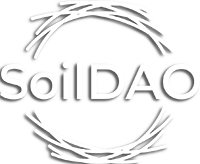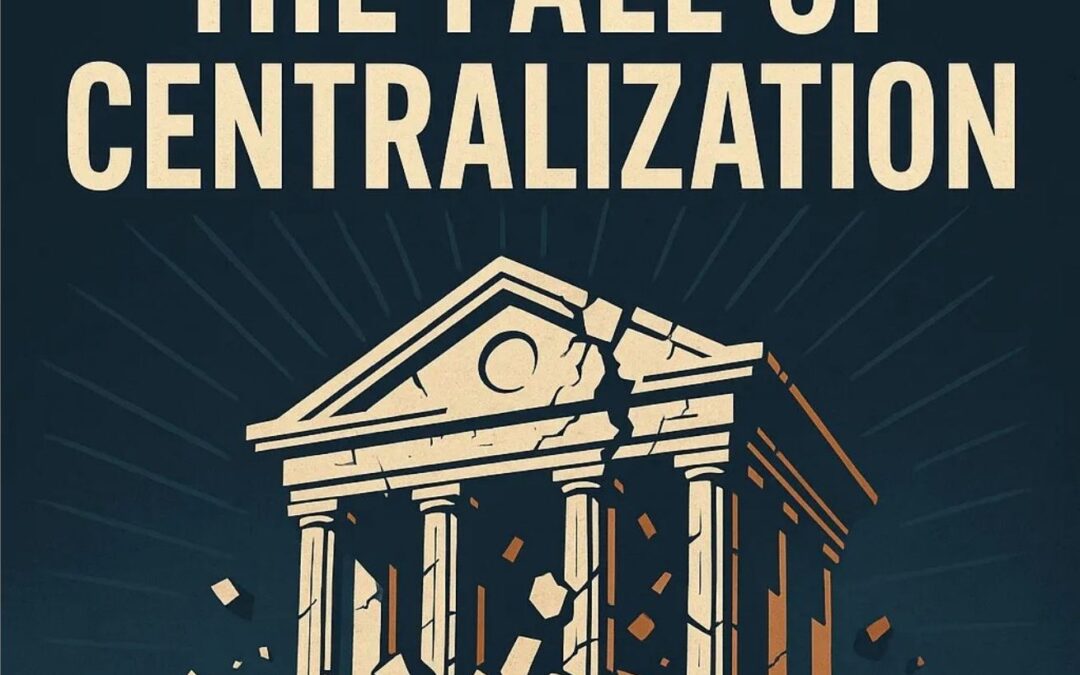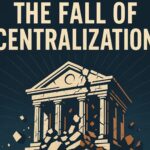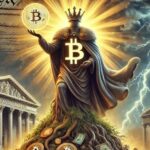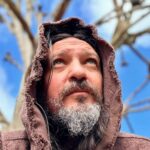Are we ready as humanity, as a species on this planet, for decentralization, or is it just another word we romanticize without fully grasping its depth?
The idea of centralization sounds attractive, doesn’t it? The notion that some distant entity will solve all my problems, take care of me, and let me enjoy life to its fullest — who wouldn’t want that? That’s the marketing pitch we’ve been sold, and the most seductive campaign of all is democracy.
Just a heads up, I’ll explore some controversial topics in this article, so if you don’t have the stomach for it, you might as well end your read here.
Centralization used to carry a bad reputation; it was embodied in rulership — monarchies, dictatorships, and the like. So we fought against it, and much of the world today has moved away from such systems, though some thriving economies, like China, UAE, and Qatar, still operate under forms of centralized authority.
We the people woke up and realized there are more of us than them; they cannot rule if we, as a whole, refuse to be ruled. This awakening, I’d argue, gave rise to the Republic of the United States of America: the land of the free and home of the brave.
People were willing to risk everything — some even braved crossing the Atlantic — to reach a land where they could escape oppression and rulership, a land where they could claim sovereignty over their own piece of earth, honored as the true stewards of their domain. The bravery it took to leave everything behind and charge into the deep unknown for the idea of sovereignty and decentralized living was unprecedented.
Let me address the elephant in the room. This land was not free to claim, and the act of claiming it as their own was not just, rooted in the unconscious idea of colonization. I’m not excusing this, but this article isn’t about that.
It’s about exploring whether decentralization is a better system than centralization. I’ll keep the conversation focused, and at a later time, I’ll write about how one of our deepest human sufferings stems from our disconnection from land and the flawed notion that we can own it in the first place — I’ve already touched on that elsewhere.
Going back to centralization, as I was saying, it had a bad rap, so those in power shifted their strategy: “OK fine, we hear you, you don’t like to be ruled, so let’s rebrand centralization as a good thing. Have you heard of this thing called democracy? Let’s give you that, so you have the illusion of choice and freedom, and we’ll market it as central entities being here to take care of you.”
“Democracy is the worst form of government — except for all the others that have been tried.”
~ Winston Churchill
Many thinkers before and after Churchill — including Plato, Tocqueville, and Jefferson — warned that unchecked democracy can degenerate into tyranny or mob rule. I’d argue this is the worst kind of tyranny because it cloaks itself in the illusion of freedom, while in practice, you’re anything but free.
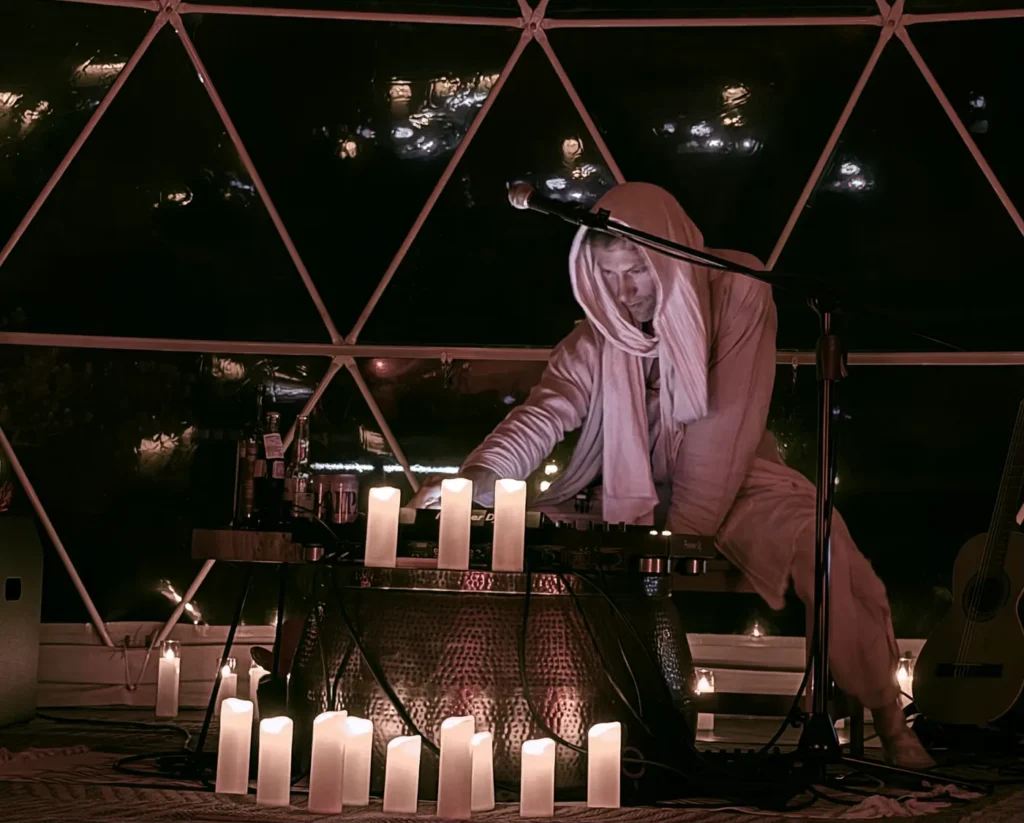
Let’s refocus on why centralization doesn’t work. It’s simple: one central entity cannot possibly address or even begin to comprehend the complexity of any large system. A single, centralized solution cannot fit every situation.
Over time, we try to address this complexity by adding rules — “let’s add a rule for that situation” — and soon we find ourselves in a world where everything is illegal, and you’ve surrendered all your freedoms for the promise of protection and care. The trade-off is never worth it.
“Those who would give up essential Liberty, to purchase a little temporary Safety, deserve neither Liberty nor Safety.”
~ Benjamin Franklin
Let me name a few centralized entities that exemplify the failure of centralization. I have deep gratitude for the hard lesson we endured during COVID, which laid bare the utter incompetence of centralized entities across the planet in every area of life.
Centralized governments struggle to adapt, centralized banking creates systemic fragility, centralized medicine often prioritizes profit over health, centralized education stifles creativity, centralized religion enforces dogma, centralized media controls narratives, and centralized internet restricts access.
These institutions are faltering under their own delusions and futile attempts at control. This article would turn into a book if I detailed all the ways these centralized entities are failing; if it’s not obvious to you, I invite you to do your own research.
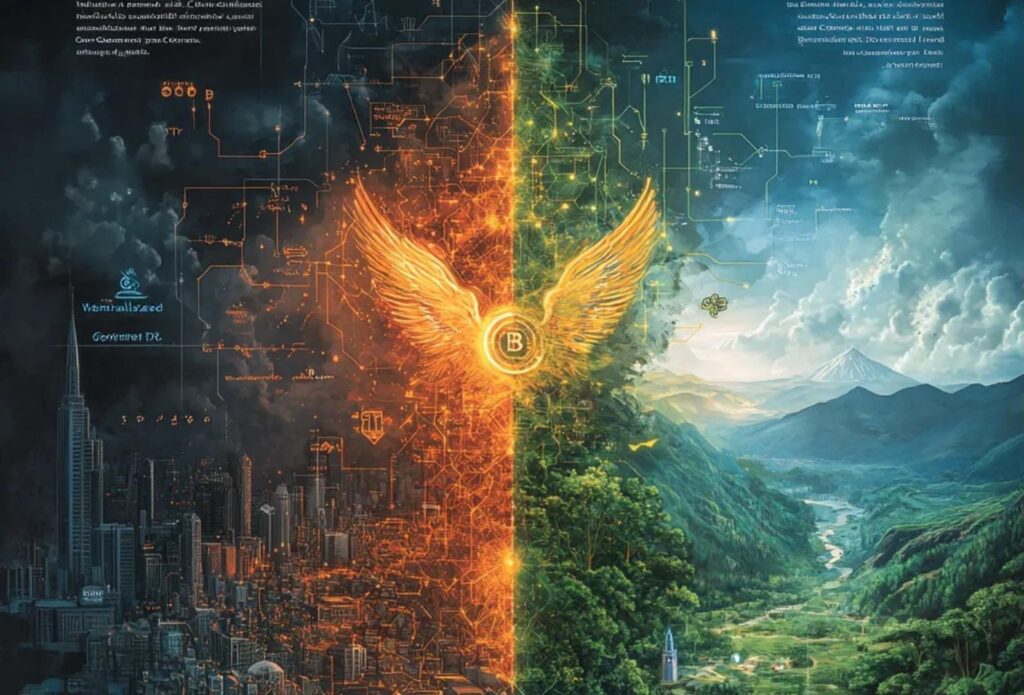
Now let’s talk about decentralization. First, we rarely see sustainable centralization in nature or the universe — outside human-made systems. Many spiritual traditions suggest that consciousness, often called the quantum field or “God,” divided itself into many to experience itself from every perspective, not to impose a single, centralized order.
Nature isn’t centralized, nor is it democratic; it’s decentralized, adaptive, and self-regulating. It’s harsh and unforgiving — yet fair — if you honor its laws. Systems that endure in nature — like ecosystems, weather patterns, mycelial networks, and galaxies — thrive through distributed intelligence, not top-down control.
While some natural systems, like ant colonies, show centralized traits, they still operate within broader decentralized ecosystems, balancing autonomy and cooperation. Centralization might offer short-term efficiency, but over time, it breeds fragility, dependency, and collapse.
Nature thrives through autonomy, feedback, and balance — not uniform control. That’s why decentralization isn’t just a political or technological preference; it’s a principle of life. It’s how nature works. It’s how freedom works. It’s how we return to harmony with the earth.
When a single species dominates an ecosystem for too long, it often triggers imbalances, leading to collapse or forced self-regulation. Nature doesn’t tolerate unchecked dominance for long; these periods are usually short-lived as ecosystems adapt, reset, or restore balance.
Now let’s examine two examples of decentralization’s success that, as they grew, faced pressures to centralize: the Republic of the USA and Bitcoin. A republic, at its core, seeks to emulate nature’s balance: you’re free to act as you will, so long as you honor its foundational principles, enshrined in a constitution. It’s a beautiful system.
We use democratic mechanisms to elect officials tasked with upholding these principles. To be clear, the USA is a constitutional republic with democratic elements — not a pure democracy. Sadly, it has been co-opted into a more centralized form, and as a result, we’re losing our rights faster than you can say cheese.
The promise of freedom, decentralization, and sovereignty drew the “brave” to this land. Our human need for freedom is etched into our DNA, yet it’s also the scariest thing in the world to be free — which is why we surrender it so easily for perceived protection.
Oh, the human creature — what a beautiful, flawed being, still learning to wield the most powerful tool in the known universe: consciousness. We’re discovering the hard way that great power comes with great responsibility, and we don’t always like responsibility.
We’d rather complain about how centralized entities fail us, even though we empower them by participating. No central entity can exist if you stop engaging with it. But those brave enough to chase freedom were drawn to the land of the free.
You could come here and claim your own land — a radical idea that fueled the USA’s rise as a modern empire. I know it’s hard to grasp, but it’s true. We were all under oppressive rulership, living on land owned by kings and queens, but the notion that we could be free, own a piece of land we called home, free from rulership and taxation, was revolutionary.
If you could cross the ocean, you could claim your piece of land that was truly yours. I’ll say it again: the land of the free was free because you could have free land, and only the brave were willing to leave everything behind for that.
Decentralized land, decentralized governance, decentralized religion — these drew people from across the planet, building a powerful empire. What happened, though? How did we end up paying property taxes, needing licenses for everything, and facing restrictions on what we can do on our own land unless we pay exorbitant fees for permits?
The USA is imploding from within — not because of any president, but because we’re trading freedom for perceived protections, losing both in the process. By the way, I’m not writing this to sound like a revolutionary or stir controversy; everything I’m saying is verifiable and grounded in historical reality.
Let’s now look at Bitcoin and its offspring. Bitcoin operates on cryptography — a complex mathematical system current computers can’t hack, though quantum computing might change that; as of now, we’re safe.
I’d argue cryptography is the greatest innovation of our time, even more than AI. Centralized AI, as many experts agree, could end civilization, which is why AI must be decentralized and open-source — it’s more powerful than us, and centralizing it risks our demise.
AI is yet another reminder of centralization’s flaws. So why is cryptography more significant for humanity than AI? For the first time, we have a technology built by humans for humans, empowering decentralization.
It’s what makes Bitcoin the most powerful money we’ve ever created: no central entity controls it, and it operates in a decentralized manner, though mining centralization and regulatory pressures pose challenges. It speaks for itself — as I write this, my phone pings with notifications of a new all-time high, though that’ll be old news in a few months as Bitcoin continues to soar.
It kind of speaks for itself.
I’d argue the republic has struggled because, while we had the idea of decentralization, we lacked the tools to sustain it — until now. SoilDAO is a protocol that embraces what history and ecology prove works: Spirit, Soil, Sovereignty, and Smart Contracts, unified as one.
It’s simply embracing what works. Join the movement.
Decentralization may not be as flashy as AI, but it’s the future. The question is: will we transition before centralized entities collapse, or will we embrace it by necessity, rising from the ashes?
On which side of the fence will you be?


AUTHOR
Hristiyan Atanasov
Hristiyan, founder of Artisanov Construction Inc. and an internationally recognized leadership coach, blends meditation, spirituality, and advanced facilitation techniques to foster self-empowerment. His passion for Web3 technologies, especially their application in real-world projects like regenerative agriculture, led to the creation of Soil Dao.
